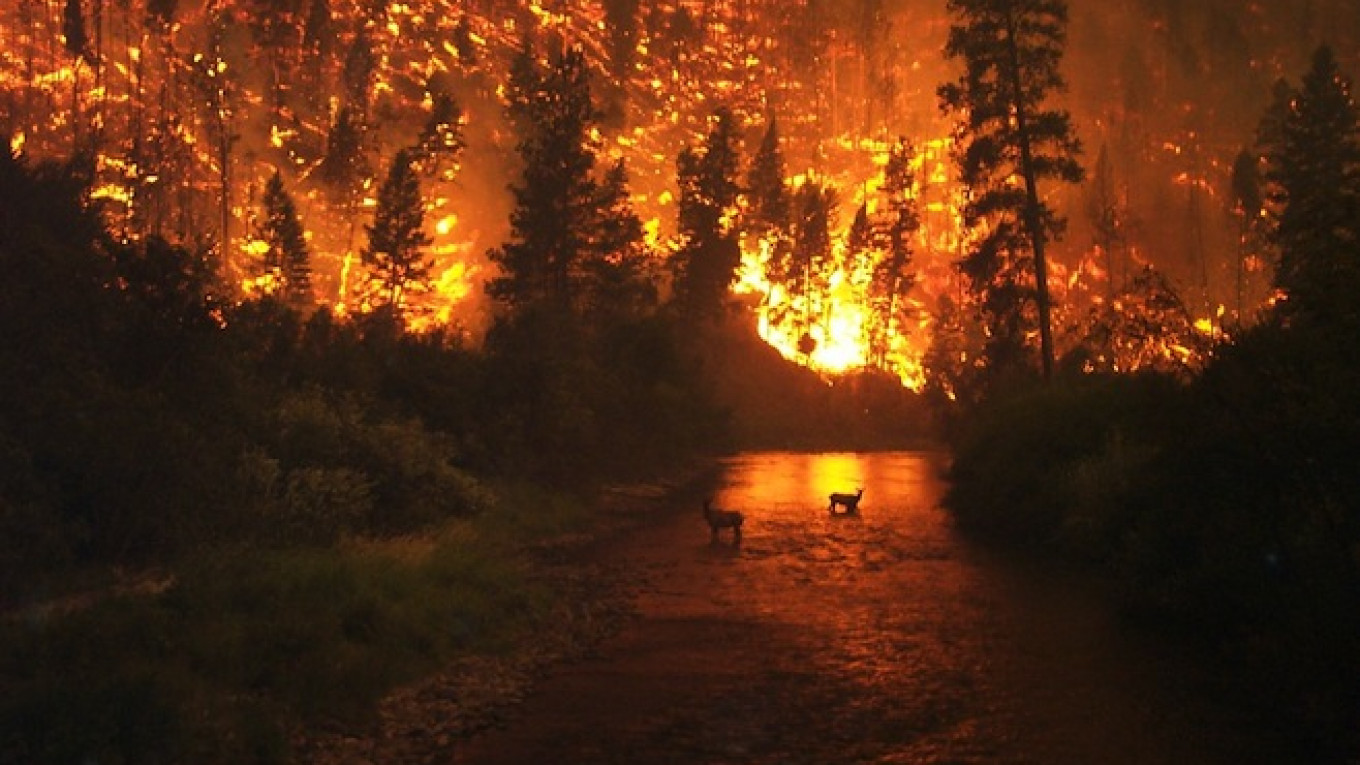Russia is now the world leader in terms of forestry destruction, a new survey showed this week, with fires blamed for destroying hundreds of thousands of square kilometers of woodland since the millennium.
Russia lost a staggering 37.22 million hectares (370,000 square kilometers) of forest between 2001 and 2013, according to data compiled by Global Forest Watch. That represents about one-twentieth of its entire tree cover in 2000.
Russia was followed in the rankings by fellow BRICS nation Brazil, which lost 35.76 million hectares of forest over the same time period. Canada lost 28.39 million hectares, putting it in third place, according to the survey published Thursday.
Despite losing more existing tree cover than any other nation, Russia also saw the growth of more new woodland — 1.35 million hectares — than any other country between 2001-2012. The United States gained 1.15 million hectares and Canada gained 759,000 hectares, placing them second and third, respectively.
In recent years forest fires have accounted for about 70 percent of tree-cover loss in Canada and Russia, which are two of the world's most forested nations, according to studies cited by the World Research Institute that leads the Global Forest Watch partnership.
The findings represent “a clear call to action to look closely at forest management in Russia and Canada in the face of climate change,” Olga Gershenzon, board chair of Russian NGO Transparent World, was cited as saying in a press release by the World Resources Institute.
“There is much to be improved in terms of monitoring and understanding the causes and types of forest fires, as well as making information about fires available to the public in real time along with maps of land allocation and responsibility,” she said in the press release.
Forest fires are an annual occurrence in Russia, particularly in central Russia, southwestern Siberia and the Far East. The worst fires in recent years raged across western Russia in 2010, killing dozens of people, destroying homes and the grain crop and causing thick smog to engulf the capital, where the daily mortality rate nearly doubled.
The forestry sector contributed $13.1 billion to the Russian economy in 2011 — about 0.8 percent of its gross domestic product that year — Global Forest Watch reported.
A Message from The Moscow Times:
Dear readers,
We are facing unprecedented challenges. Russia's Prosecutor General's Office has designated The Moscow Times as an "undesirable" organization, criminalizing our work and putting our staff at risk of prosecution. This follows our earlier unjust labeling as a "foreign agent."
These actions are direct attempts to silence independent journalism in Russia. The authorities claim our work "discredits the decisions of the Russian leadership." We see things differently: we strive to provide accurate, unbiased reporting on Russia.
We, the journalists of The Moscow Times, refuse to be silenced. But to continue our work, we need your help.
Your support, no matter how small, makes a world of difference. If you can, please support us monthly starting from just $2. It's quick to set up, and every contribution makes a significant impact.
By supporting The Moscow Times, you're defending open, independent journalism in the face of repression. Thank you for standing with us.
Remind me later.


